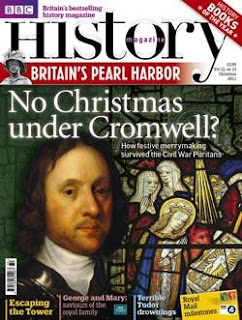 With Christmas largesse, I purchased the BBC Music Christmas 2011 issue at one of our local Barnes & Noble stores (which is closing on 12/31 this year because the store's lease is up and not being renewed), and we've enjoyed listening to the CD of music from Caius College. One selection that interested me in particular is the Sussex Carol, which dates from the seventeenth century at least--but may be older, since it's not clear if the Irish bishop and Franciscan, Luke Wadding who included it in his 1694 publication composed it or copied it. Both Ralph Vaughn Williams and Cecil Sharp heard it and Williams transcribed the tune and there are two main arrangements, by David Willcocks (on this CD) and Philip Ledger:
With Christmas largesse, I purchased the BBC Music Christmas 2011 issue at one of our local Barnes & Noble stores (which is closing on 12/31 this year because the store's lease is up and not being renewed), and we've enjoyed listening to the CD of music from Caius College. One selection that interested me in particular is the Sussex Carol, which dates from the seventeenth century at least--but may be older, since it's not clear if the Irish bishop and Franciscan, Luke Wadding who included it in his 1694 publication composed it or copied it. Both Ralph Vaughn Williams and Cecil Sharp heard it and Williams transcribed the tune and there are two main arrangements, by David Willcocks (on this CD) and Philip Ledger:On Christmas night all Christians sing
To hear the news the angels bring.
News of great joy, news of great mirth,
News of our merciful King's birth.
Then why should men on earth be so sad,
Since our Redeemer made us glad,
When from our sin he set us free,
All for to gain our liberty?
When sin departs before His grace,
Then life and health come in its place.
Angels and men with joy may sing
All for to see the new-born King.
All out of darkness we have light,
Which made the angels sing this night:
"Glory to God and peace to men,
Now and for evermore, Amen!"
The magazine also includes stories about the Choirs at several of the other Colleges at the University of Oxford.

























